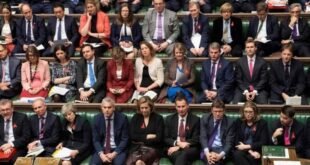The Case for a Stronger Sugar-Sweetened Beverage Tax in Nigeria
The Corporate Accountability and Public Participation Africa (CAPPA) has expressed concerns that the current tax on sugar-sweetened beverages (SSBs) in Nigeria is insufficient to make a meaningful impact on public health. Akinbode Oluwafemi, the Executive Director of CAPPA, highlighted these issues during a special media roundtable in Abuja, emphasizing that the existing ₦10 per litre tax is “inadequate” and fails to influence consumer behavior or improve health outcomes.
The event, themed “Time To Increase Sugary Drinks Tax Is Now,” was part of CAPPA’s broader efforts to address the growing prevalence of non-communicable diseases (NCDs) through effective fiscal policies. Oluwafemi called for an increase in the SSB tax to raise the final retail price of sugary drinks by 20 to 50 percent, aligning with World Health Organization (WHO) recommendations.
Lessons from Other Countries
Oluwafemi pointed to examples of countries such as South Africa, Mexico, and the United Kingdom, which have implemented significant SSB taxes. These measures have led to reduced consumption of sugary drinks and helped protect jobs within the beverage industry. He argued that similar strategies could be adopted in Nigeria to combat the rising burden of NCDs.
Currently, the SSB tax in Nigeria accounts for only about 1% of the average retail price of sugary drinks, which is at least ₦1,000 per litre. This minimal rate is far below what is needed to drive meaningful change in consumer habits.
The Rising Threat of Non-Communicable Diseases
Non-communicable diseases now account for one in three deaths in Nigeria, according to the WHO. These diseases are no longer confined to the wealthy or the elderly; they are increasingly affecting the working population, causing instability in families and undermining national productivity.
A recent study revealed that Nigerians spend approximately ₦1.92 trillion ($1.26 billion) annually on healthcare related to preventable conditions. Many families are forced to sell land, liquidate savings, and fall into extreme poverty in their attempts to afford medical care for loved ones.
Benefits of a Well-Designed SSB Tax
A well-designed and effectively implemented SSB tax can offer a low-cost, high-impact solution. It has the potential to reduce diet-related diseases, alleviate pressure on the already overburdened healthcare system, and generate much-needed domestic revenue.
The WHO has also advised Nigeria and other member states to increase the prices of alcohol and tobacco by 50% over the next decade through taxation. This approach aims to curb the rising incidence of NCDs.
Addressing Industry Concerns
Oluwafemi addressed common arguments from the beverage industry against the SSB tax, including claims that it would harm the economy, lead to job losses, and lack transparency. He dismissed these concerns, stating that such fears were used in South Africa before the introduction of its own SSB tax.
“In fact, the sector remained stable, and jobs were protected. In countries where the SSB tax has been successfully implemented, beverage companies adapted by reformulating products, introducing healthier alternatives, and even expanding their market share,” he said.
A Call to Action
Oluwafemi urged the Nigerian government to prioritize public health over corporate interests. He emphasized that a stronger SSB tax could save lives, ease the strain on the country’s fragile healthcare system, and generate additional revenue.
“The time to act is now. Nigeria cannot afford the cost of delay. A stronger SSB tax will reduce the consumption of sugar-laden drinks, lower the incidence of preventable illnesses, and improve national health outcomes,” he concluded.
 Info Malang Raya Its All About World News
Info Malang Raya Its All About World News




